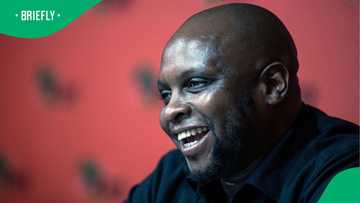Mbongeni Ngema: A complex legacy of artistry and controversy
- The sudden death of Mbongeni Ngema has left the nation reeling
- The controversial musician led a life that was both praised and questioned and the debate has continued fiercely after his death
- Briefly News takes a look at his legacy littered with incredible achievements and dark revelations of violence
- Anti GBV activist Yolanda Dyantyi weighed in with her thoughts on how to deal with GBV perpetrators
Mbongeni Ngema has left the world of arts and entertainment in mourning after passing away in a tragic car accident on Wednesday night. As friends and foes alike grapple with the news, Ngema's multifaceted life and career have sparked a range of emotions. While some celebrate his contributions to the industry, others cannot overlook the controversies surrounding him. Briefly News takes a look at the complex faces of Mbongeni Ngema, exploring his legendary status, his alleged unsavoury lifestyle, and the lasting impact he leaves behind.
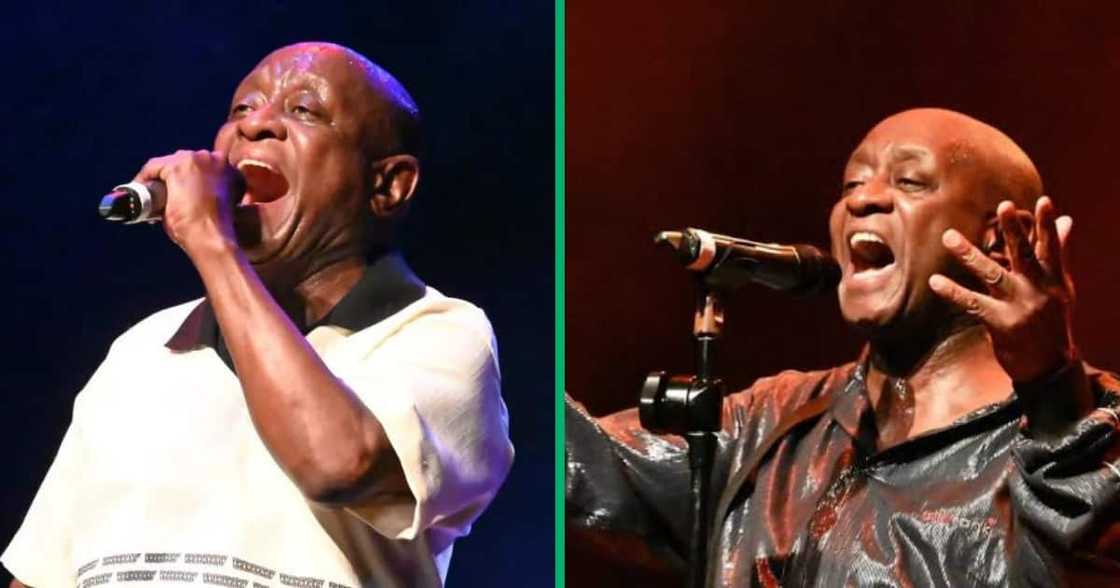
Source: Getty Images
A legacy of artistry
Mbongeni Ngema's name became synonymous with the entertainment industry, thanks to his immense talent in song and dance. Starting his career as a theatre backing guitarist, Ngema went on to write the critically acclaimed musical Sarafina! and co-write the award-winning Woza Albert! His plays reflected the spirit of black South Africans under the oppressive Apartheid regime, earning him recognition and admiration from high-ranking officials, politicians, and industry peers.
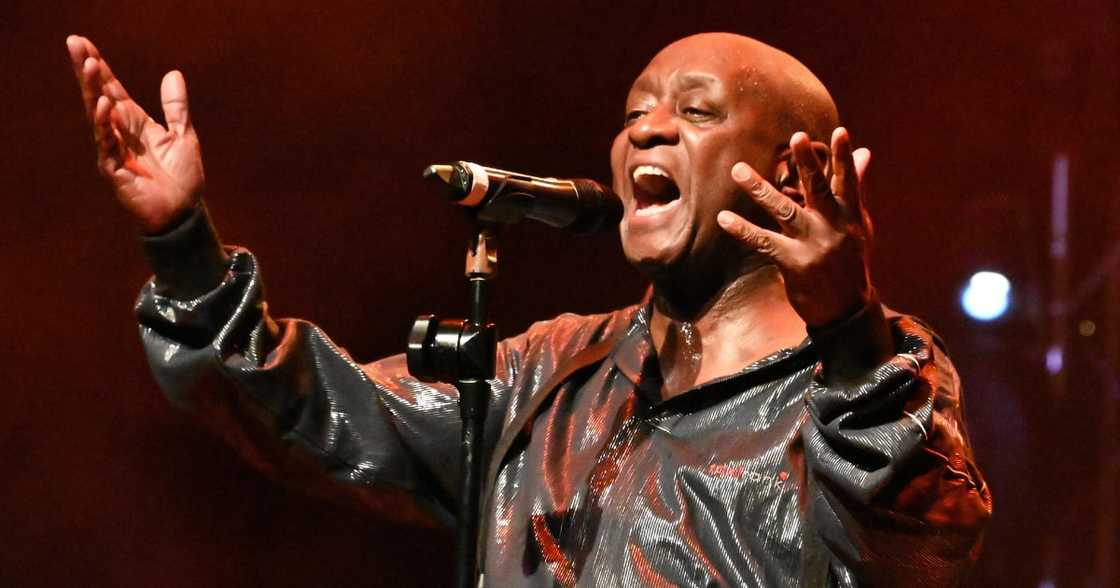
Source: Getty Images
PAY ATTENTION: Briefly News is now on YouTube! Check out our interviews on Briefly TV Life now!
Tributes and condolences
Following Ngema's untimely demise, tributes poured in from all corners of society. South African President Cyril Ramaphosa expressed his condolences, acknowledging Ngema's creative narration of the liberation struggle and its impact on oppressed South Africans.
Minister of Arts and Culture Zizi Kodwa, also mourned the loss of such a talented individual. These heartfelt messages highlighted the profound influence Ngema had on South Africa's cultural landscape.
The dark side
However, not everyone mourned Ngema's passing. The musician and playwright had his fair share of controversies throughout his life. In 1996, corruption allegations led to the cancellation of the planned run of Sarafina II, resulting in Ngema being investigated for fraud. He also faced criticism for composing a song, Amandiya, banned by the high court in South Africa due to its controversial lyrics.
Furthermore, allegations of sexual harassment and abuse surfaced in 2019, leading to Ngema's removal as co-director of a production of Sarafina. His ex-wife, Xoliswa Nduneni-Ngema, also published memoirs detailing instances of alleged abuse and rape.
The Leleti Khumalo controversy
One accusation that struck a chord with many South Africans was the alleged grooming and abuse of Sarafina! star Leleti Khumalo by Ngema. Social media users openly discussed this issue, with some even celebrating Ngema's death as a result.
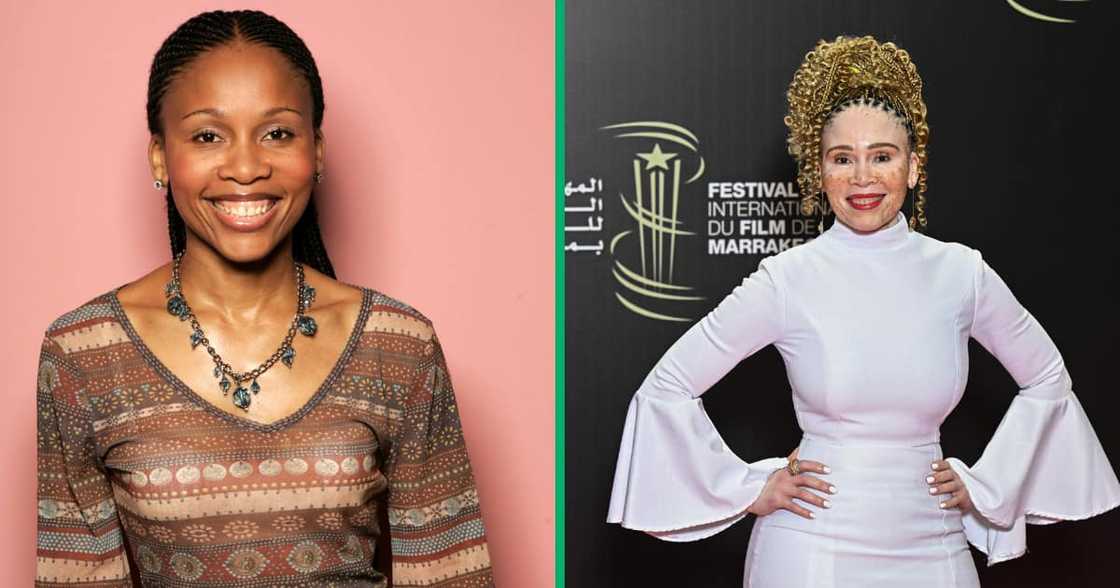
Source: Getty Images
Briefly News reported that one social media user who is a fan of the former Imbewu: The Seed actress Leleti Khumalo came gun-blazing on X, formerly known as Twitter, sharing a controversial tweet claiming that Ngema used to abuse the star and that his death is not so sad.
The user @Fiireee__ wrote:
"He abused Leleti Khumalo so nothing to be sad about here.”
A redemption arc
In a surprising turn of events, Ngema formed an organization in 2021 to combat gender-based violence. His project, Istimela Sase Zola, sought to educate young men on respecting women and girls. Ngema saw this initiative as a way to use his influence as a public figure to positively impact and address societal issues. Speaking to Timeslive at the time, he said:
“I thought as a public figure and a leader in society I should take it upon myself to teach the young ones to say this is not the way of life. If we were able to defeat apartheid, what could prevent us from defeating gender-based violence?”

Read also
Chidimma Adetshina saga cans SA's invite to global fest, drama throws Mzansi into wild spin online
Many were sceptical of his sudden change and questioned his real intentions because it is a common belief that abusers never change.
An anti GBV activist weighs in
Looking to shed more light on this issue, Briefly News spoke to anti-GBV activist Yolanda Dyantyi who shared her thoughts on whether an abuser can show remorse:
“I've learned from both personal experience and through engaging various resources that abusers are usually aware of their violent behaviour and the gravity of their actions onto others. It has to be an intentional and personal choice to actually be able to take accountability for your abuse and harm onto others and want to undergo the process of transformation which is also deeply rooted in healing. This is something I feel is not often highlighted when we speak about violence and the impact that an abuser's socio-economic and political environment has on influencing their behaviour and impact in society.”
Speaking on how an abuser can start the process of redemption and healing, Dyantyi said:
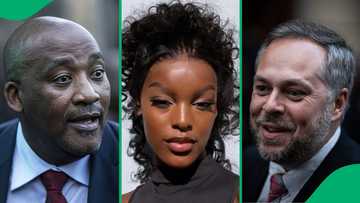
Read also
Gayton McKenzie hails explosive findings in Chidimma Adetshina identity saga: "Arrest should follow"
“It starts with intentionally acknowledging your harmful behaviour and taking accountability for your actions. However, on the spectrum of abuse, sexual and physical violence perpetrators often don't change or stop violating people unless they are convicted for their crimes and locked up because sometimes the available resources to behavioural change and rehabilitation programs are simply not enough. Law enforcers and the government at large need to be more intentional in responding to the crisis of abuse in South Africa which unfortunately is so deeply sewn in our social fibre as a nation and as the global community.”
Dyantyi also noted that the victims are usually the ones who are forgotten in the GBV narrative:
“The overpowering narrative in mainstream reporting on gender-based violence in South Africa is not centred on the needs of survivors but rather how society should continue to provide resources in an attempt to help perpetrators and give them a second or third chance at redemption. It's angering how patriarchy, as a social and economic system is able provide resources and space for abusers to thrive whilst issues such as funding for victims of abuse and broader GBV activism is very little to non-existent.”
The life and career of Mbongeni Ngema were undeniably complex, leaving behind a legacy that continues to spark debate. While his contributions to the arts industry were significant, his alleged unsavoury lifestyle and controversies cannot be ignored. As the world mourns his loss, it is essential to recognize the multifaceted nature of his existence and his impact on South Africa's cultural landscape. Mbongeni Ngema's story serves as a reminder that even the most celebrated figures can have a dark side, leaving behind a legacy that is both revered and questioned.
Old video of Mbongeni Ngema blasting ANC resurfaces
Meanwhile, Briefly News previously reported that an old clip of the late Mbongeni Ngema resurfaced on social media. In the video shared online, the icon rants about how the ANC has turned against its people. The star is also heard saying they are a lost cause and won't be swayed to do the right thing.
PAY ATTENTION: Сheck out news that is picked exactly for YOU - click on “Recommended for you” and enjoy!
Source: Briefly News

Sibusisiwe Lwandle (Head of Entertainment) Sibusisiwe Lwandle is the Head of Current Affairs at Briefly News (joined in 2019). She holds 3 degrees from the University of Cape Town and the University of KZN and short course certificates from Yale and UCL. She has 14 years of experience in journalism, having worked in print, online, and broadcast media. She has worked at Independent Media and 1KZNTV and has contributed columns to the Washington Post. Passed a set of trainings by Google News Initiative. Email: sibusisiwe.lwandle@briefly.co.za

Yolanda Dyantyi (Social Justice Digital Campaigner and Executive Director at Archive Amabali Wethu) Yolanda Dyantyi is an African Feminist Activist, Digital Campaigner and Public Speaker and the Founding Director of Archive Amabali Wethu - a digital advocacy and civic technology public benefit organisation that uses multimedia communications techniques to advocate for and influence the realisation of justice for women and broader marginalized communities. Yolanda is currently 26 years old studying towards a BA in Communication Science through UniSA.

